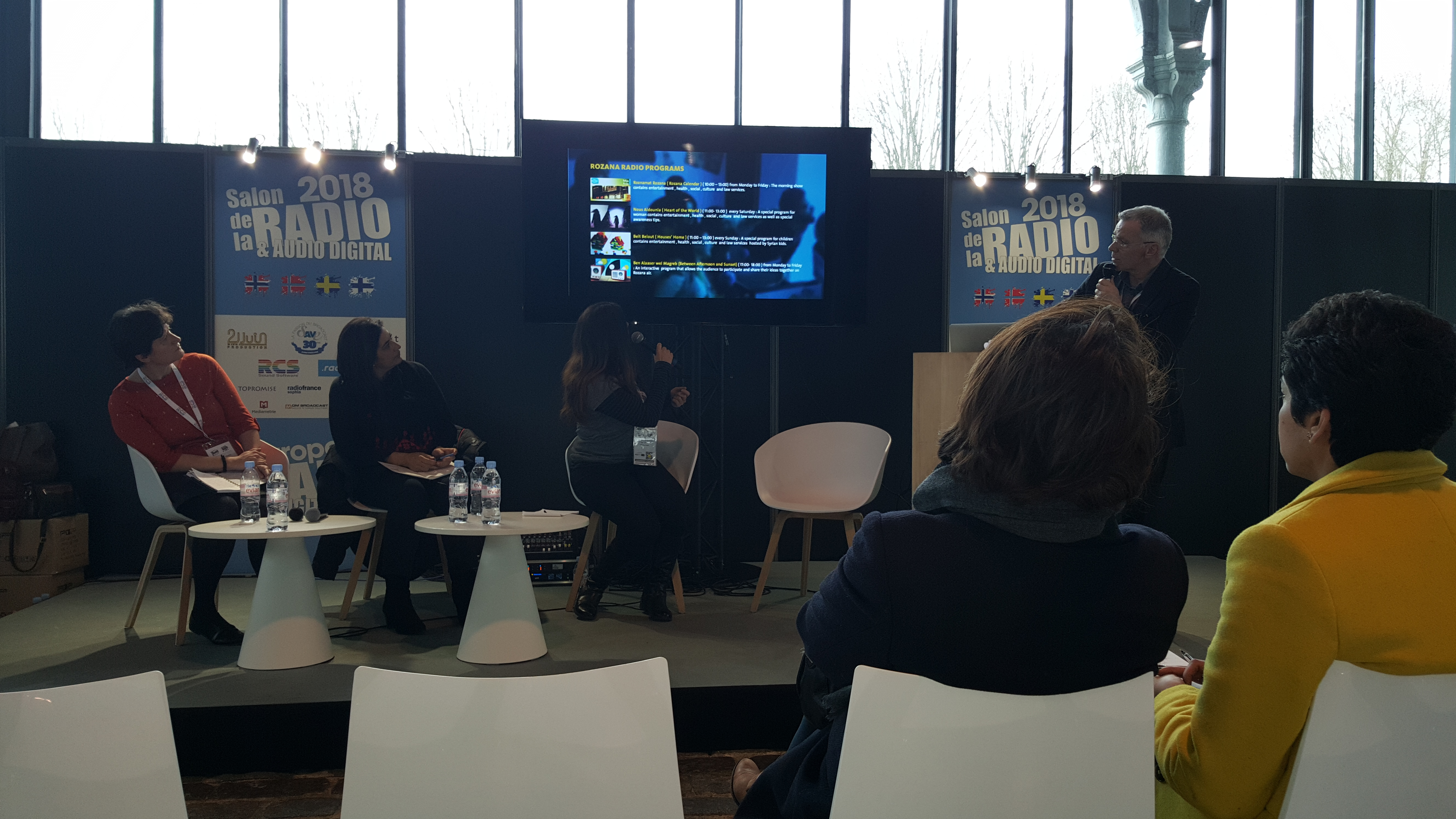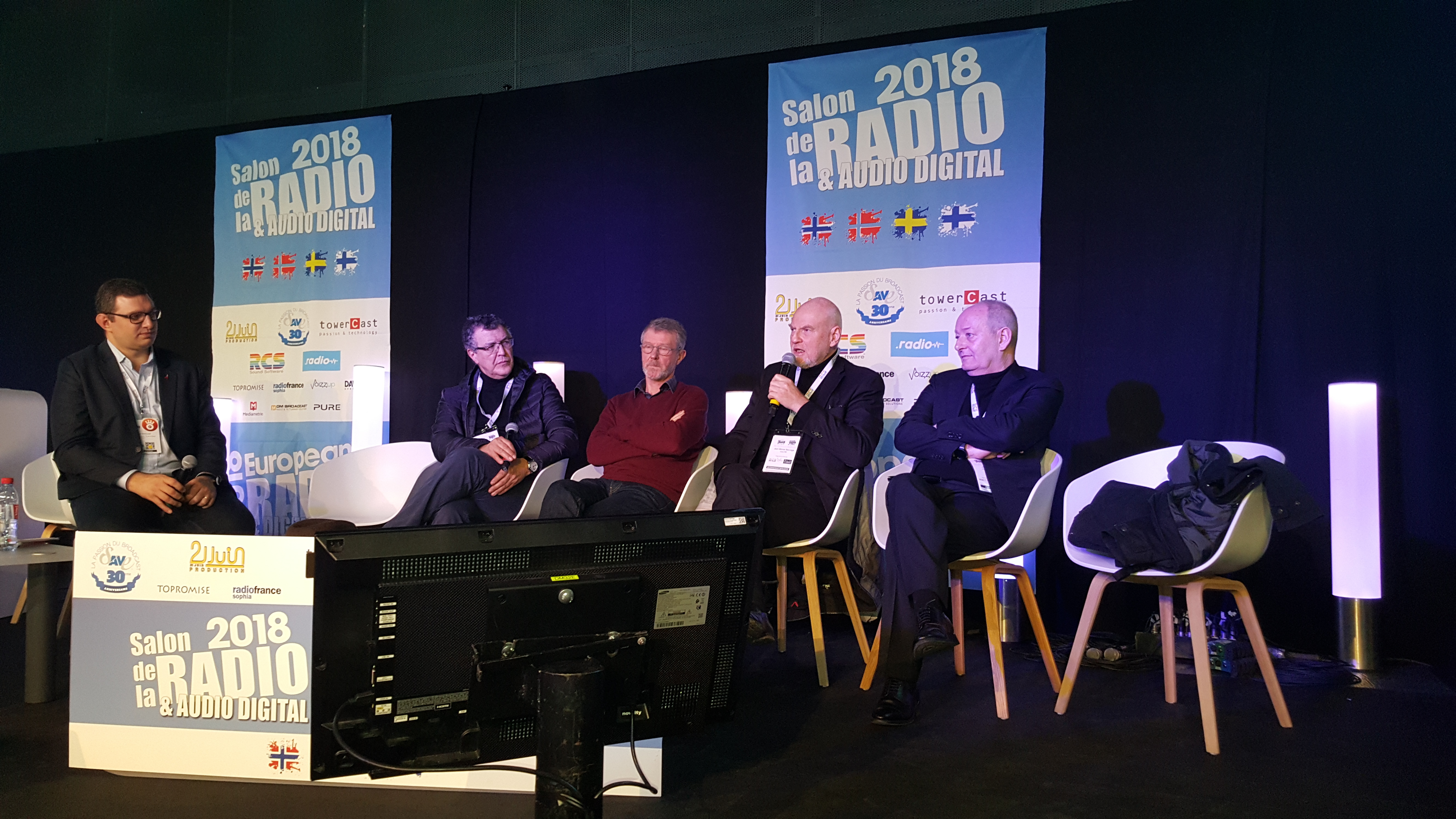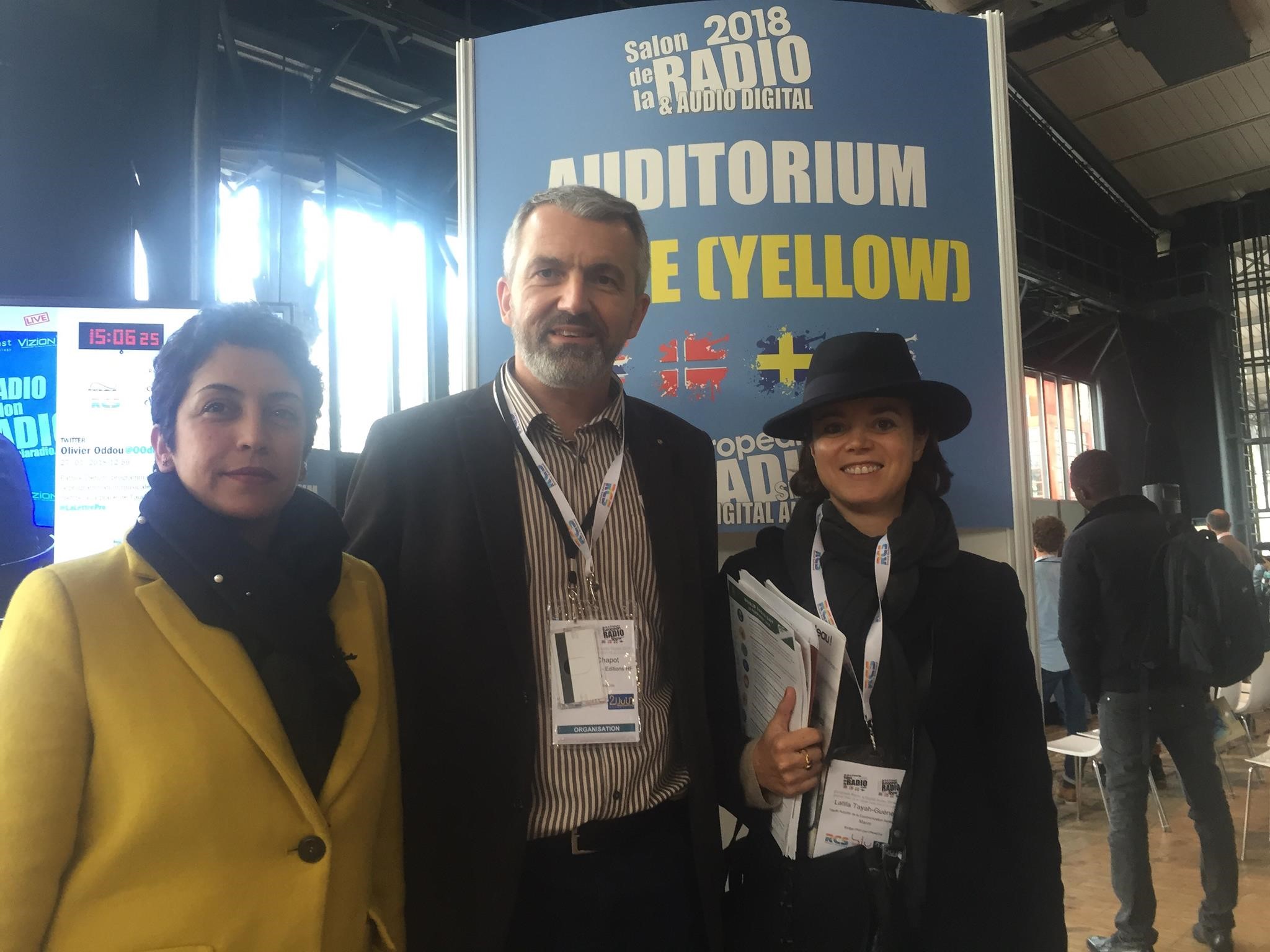HACA Attends the 2018th Edition of the European Radio Show on Digital Challenges
“The European Radio & Digital Audio Show” held in Paris is expanding its scope of intervention as it is becoming more international. Thus its 2018th edition (held from 25th to 27th January) was dedicated to the large European radio landscape, which goes hand in hand with the technological shift of the digital radio and the numerous possibilities and extensions that it offers.
During this flagship event a delegation from the High Authority of the Audiovisual Communication was present. The delegation consisted of Mr. Mohammed Abderrahim and Mr. Bouchaib Ouabbi, members of the Higher Council of Audiovisual Communication, Mr. Jamal Eddine Naji, Director General of the HACA, Ms. Latifa Tayah, Director of the Development and Studies Department (DSD), Mr. Mohamed Attari, coordinator of the “media economy” unit at the DSD, in addition to Mr. Moncef El Yazghi and Miss Majda Saber from Program Monitoring Department (PMD).
This edition, which gathered millions of professionals confident about the future of the radio and the several perspectives encountering its evolution thanks to new technologies, was an opportunity to discuss many topics in conferences and round tables, including technology developments and challenges in terms of content. Digital Radio Broadcasting (DAB+), Smartphone and tablets production, fake news, differentiating between journalism and entertainment, copyrights, DAB+ challenges for regulators were also among the debated topics. In addition to conferences, various master classes were available. In fact, many content developers benefited from a master class that highlighted facilities brought by applications to foster the sound in social media… “The sound will be the new lung for technology development”, that was the credo of the show.
Radio: A medium for the future digital era
The radio is hale and hearty. This assertion was largely confirmed by hundreds of European radio professionals. It is no doubt that new challenges emerge, but this medium remains embodied in its history. This assertion was also supported by different speakers from France, the UK, the Netherlands, Switzerland, Italy, the Scandinavian countries, as well as Morocco (« Radio Plus », « Radio Atlantic » and « Radio Aswatt »).
With the multiplication of production and broadcasting modes, the radio is flourishing in a breeding ground. Results on radio listeners (digital carriers) delivered by “Médiamétrie France” have largely proven that in the case of France. In fact, the number of daily auditors in digital media is estimated, in this country of 67 million inhabitants, at over 7 million auditors. These digital media represent 11.4% of radio total audience ratings. Furthermore, 3.4 million of French people listen to the radio on mobile phones, with an average of 1h44min per day and per auditor. According to médiamétrie, the radio reached 1.2 audience ratings on multimedia carriers (an increase of 11%). Another key figure reveals that the live radio streaming generates more than 1.7 million daily auditors, for about one hour of listening per auditor, and over 54minutes daily per auditor. Recalling that on 2016, the number of the daily listeners in France rose to 1.3 million with 54 min per listener. This number of radio auditors is spread along websites, applications, and even online videos. However, regarding reliability, French people trust radio stations more than any other medium because of to its mobility, free use, non-exclusivity and immediacy. Therefore, participants confirm that the radio sector is still rising, and it will reach the future.
A look at the content and its regulation
The content has always been the essence of all success. As a matter of fact, Radio Télé Luxembourg (RTL) is an example of a longtime leading non specialized radio. Yet, how could RTL maintain such progress? The officials of this radio believe that the program is the key. It is the nucleus and the identity that retains listeners. “Coherence in the program schedule is the path to success”, participants assure. For RTL, the news continues to save its predilection in the planning. The radio also stressed the quality of the morning shows which are not merely a flow of music as assured by an official from this long running radio station.
With the change and the development that the sector witnesses, the participants note that there will be a stiff competition where only creativity, scriptwriting, and content production can make a difference.
On the other hand, regulators also face similar challenges. Thus, the organizers of this radio show invited the president of the French regulator Le Conseil Supérieur de l'Audiovisuel (CSA), who identified the challenges they face at this moment where the country is intending to profoundly amend the legal regime that rules its audiovisual and regulation system. It is worth mentioning that the “web radio” regulation matter was raised by all participants, including public operators like France Inter, which is strongly present at most debates, and private ones.
Moreover, numerous participants highlighted the accessibility issue. Due to the huge pressure that the GAFA is imposing nowadays, tangible action is needed in order to counter their hegemony at all the accessibility, mobility and content levels. While regarding the newest equipments exposed, this show proves that the radio automation continues to progress. Besides, it is obvious how technology surpasses all expectations and gives room to more progress. During this radio show, a number of the brand-new software that were demonstrated permit automatic saving, HD treatment, an adaptation of the format and the arrangement of all the broadcasting media, in addition to a video reception that manages all DATA aspects. The radio show this year offers a diversity of choice which shall allow the stations to choose what suits their strategy and budget.




